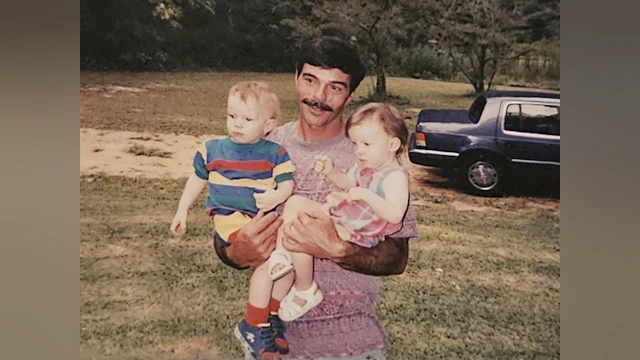I want others to know that having difficult experiences with mental health does not mean that you are alone.
My uncle was one of the strongest people I knew growing up. He taught me and my brother how to play games, always hid candy in his house, and had a quick and sarcastic wit. He even convinced us that the best time to jump in mud puddles was right after bath time. (Much to our parents’ dismay.) He suffered from a stroke, and struggled to recover and get back to work. It was hard for him to get back the same level of independence. His (false) feeling that he had become a burden to others – which is one of the common warning signs for suicide – overcame him. He left us in 2010.
This was my first real experience with any issue related to mental health, and specifically with losing someone to suicide. It happened the week before finals my freshman year of high school. Afterwards, it was hard for me to go to school and see others. While I did tell my friends about what had happened, I still felt isolated in the grieving process, because the sense of shame some people associated with suicide and mental health made the topic feel taboo. I was under the impression back then that strength meant suffering silently. I now know that’s not the case.
Over the next few years of high school, one of my closest friends struggled with her mental health. She was the one who taught me that true strength involves sharing your feelings and accepting support from others to help you keep going even when you don’t think you can. Friendship allows for vulnerability, and leaning on others does not mean you are burdening them. Today, she still struggles with her mental health sometimes – kind of like how someone might have an ongoing physical health condition they need to regularly care for – but she has support, and finds the hope and motivation to keep moving forward.
Seeing her find happiness fills me with so much joy. Watching her celebrate her marriage, and having the family she’s always wanted. Being comfortable in who she is. She inspires me more than she will ever know. I am so glad she is still here.
It took years for me to truly open up about how these experiences have affected me. Thankfully, the conversation around mental health has started to change, the stigma gradually fading. I had always wanted to be a part of suicide prevention efforts, and in 2022 I walked for the first time in one of the American Foundation for Suicide Prevention’s Out Of the Darkness Community Walks. Events such as the Community Walks, the Campus Walks, and The Overnight Walk help raise life-saving funds and enable many people to find a place of hope and healing through a shared sense of community. Walkers send a message out into the world that helps move our culture forward, while meeting others who have similar personal stories related to their connections to the cause. The Walks help survivors of suicide loss and those with lived experience know they are not alone, and that their story and their life matters.
Research, education, and support services offered by organizations like the American Foundation for Suicide Prevention help to break the stigma behind mental illness. AFSP also offers guidance on how to spot the warning signs in yourself and others, and how to have #RealConvos about mental health, including when you think someone may be struggling.
There is hope. There is healing. I want to be a part of it, and you can be, too.
